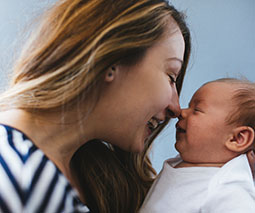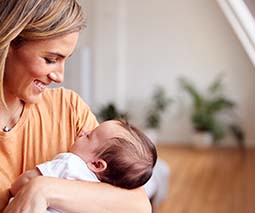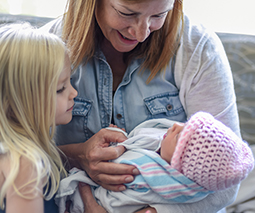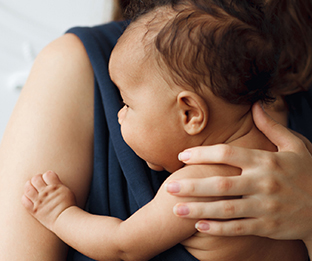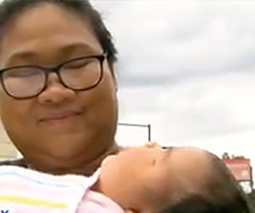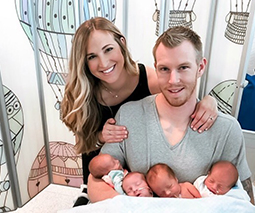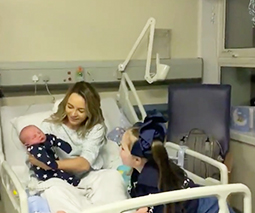Beauty blogger mum decides not to breastfeed to support her own mental health
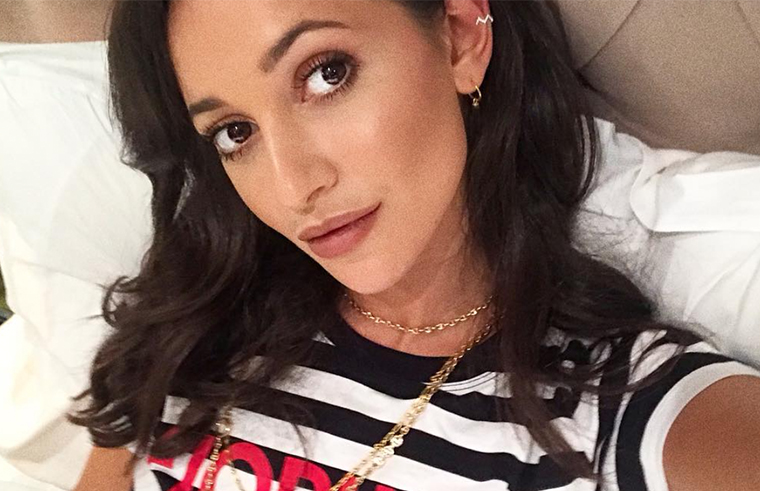
Fashion blogger and mental health ambassador Roxie Nafousi has just had her first child, and she’s shared her experience of balancing her own mental health with pregnancy and parenthood with Romper.
A history of depression
Roxie told Romper that she actually found out she was pregnant when she began suffering from prenatal depression.
It’s certainly not the first time she’s discussed her own mental health publicly, in fact, she’s made a habit of it in a bid to de-stigmatise mental ill health and connect with others who are going through – or know someone going through – similar things.
Roxie’s little boy Wolfe Christopher was born in early June, and with her previous history of depression top-of-mind, this new mum is keen to do all she can to avoid postnatal depression.
“I was really conscious of postnatal depression, and I wanted to make sure that I was in a really strong place before the baby came,” Roxie told Romper. “I put in all the sort of preventative measures, and it got me thinking a lot about feeding.”
Acutely aware that sleep deprivation and breastfeeding challenges – and the pressure to breastfeed successfully – can be contributing factors for women who do suffer from postnatal depression, Roxie decided to take a proactive approach.
“I thought, OK, well maybe if I don’t breastfeed, that’s one thing that I can do to prevent me from getting postnatal depression, because I’m going to be able to have a way to feed the baby in the night, for example, so I can get rest. I knew I wasn’t going to be attached to the baby all the time.”
Is breast best for mums?
This is such an interesting decision because very often postpartum parenting is solely focused on what’s optimal for baby.
We know that breastfeeding gives infants a great start in life, but when it’s to the detriment of a mum’s physical and/or mental health these benefits might be diminished as a mum struggles to care for herself and her baby.
A piece recently published in The Guardian – Is breast really best? by Emily Oster – looked at data surrounding health and breastfeeding.
“It seems it is best in terms of infant health,” Emily wrote. “Where I think we run into complexity is in how we contextualise the size of the benefits, taking into account the fact that breastfeeding is difficult and may not be practical for all.”
In Roxie’s case, she decided that she could better support her own and her baby’s health and wellbeing, by choosing not to breastfeed.
“I believe we would be better off in a world where women get enough support to find out if breastfeeding works for them, and if they decide it doesn’t, formula-feeding is supported and not shamed,” Emily Oster notes and I could not agree more.
Congratulations to Roxie for having the strength to do what felt best for her family – and so generous of her to share her story so openly.
Read the full story at Romper.
If you have concerns about breastfeeding your child seeking support and advice is the best way forward. You could also talk to your maternal child health nurse, GP, a lactation consultant or a breastfeeding helpline like the one the Australian Breastfeeding Association has set up.
